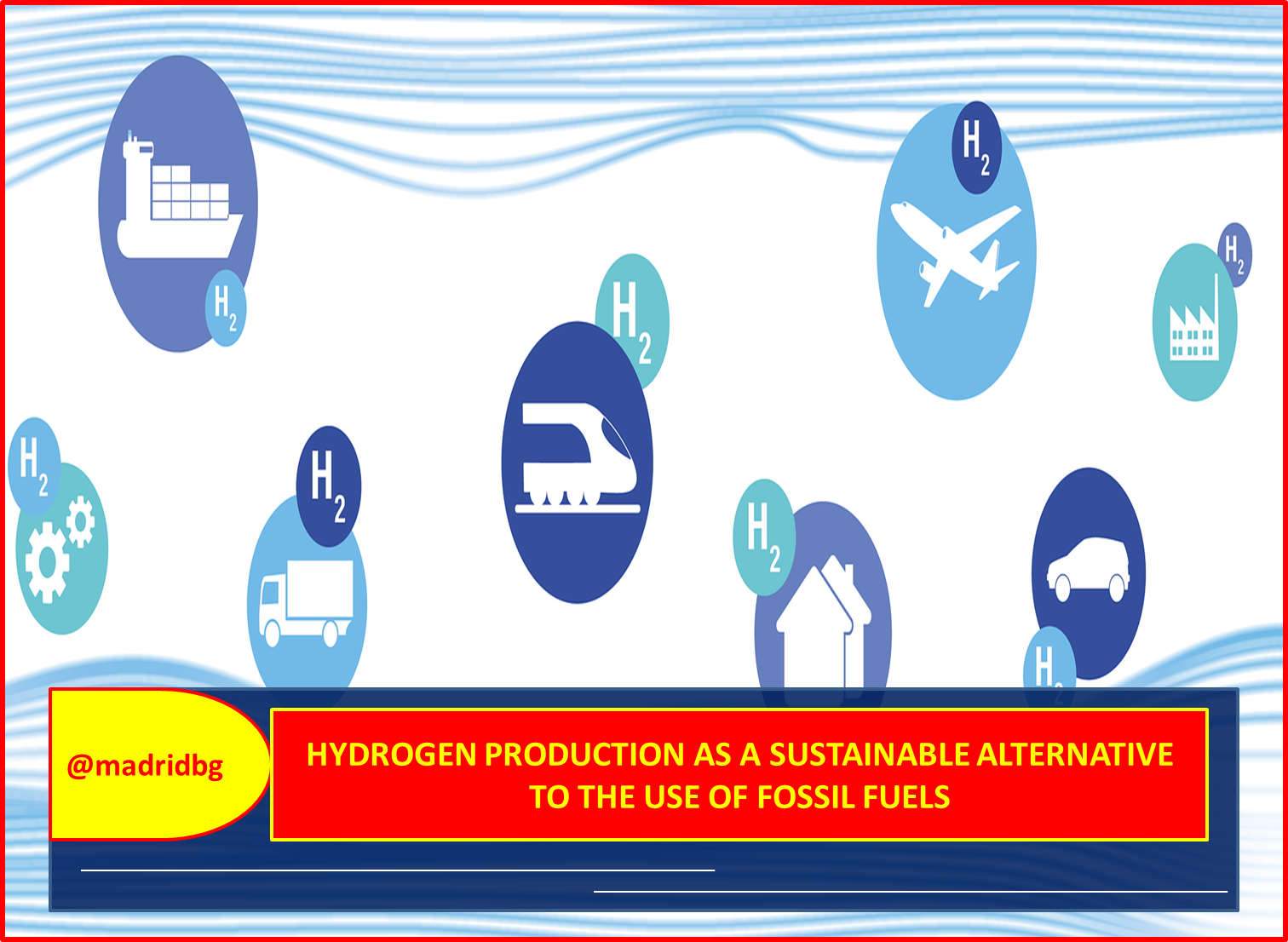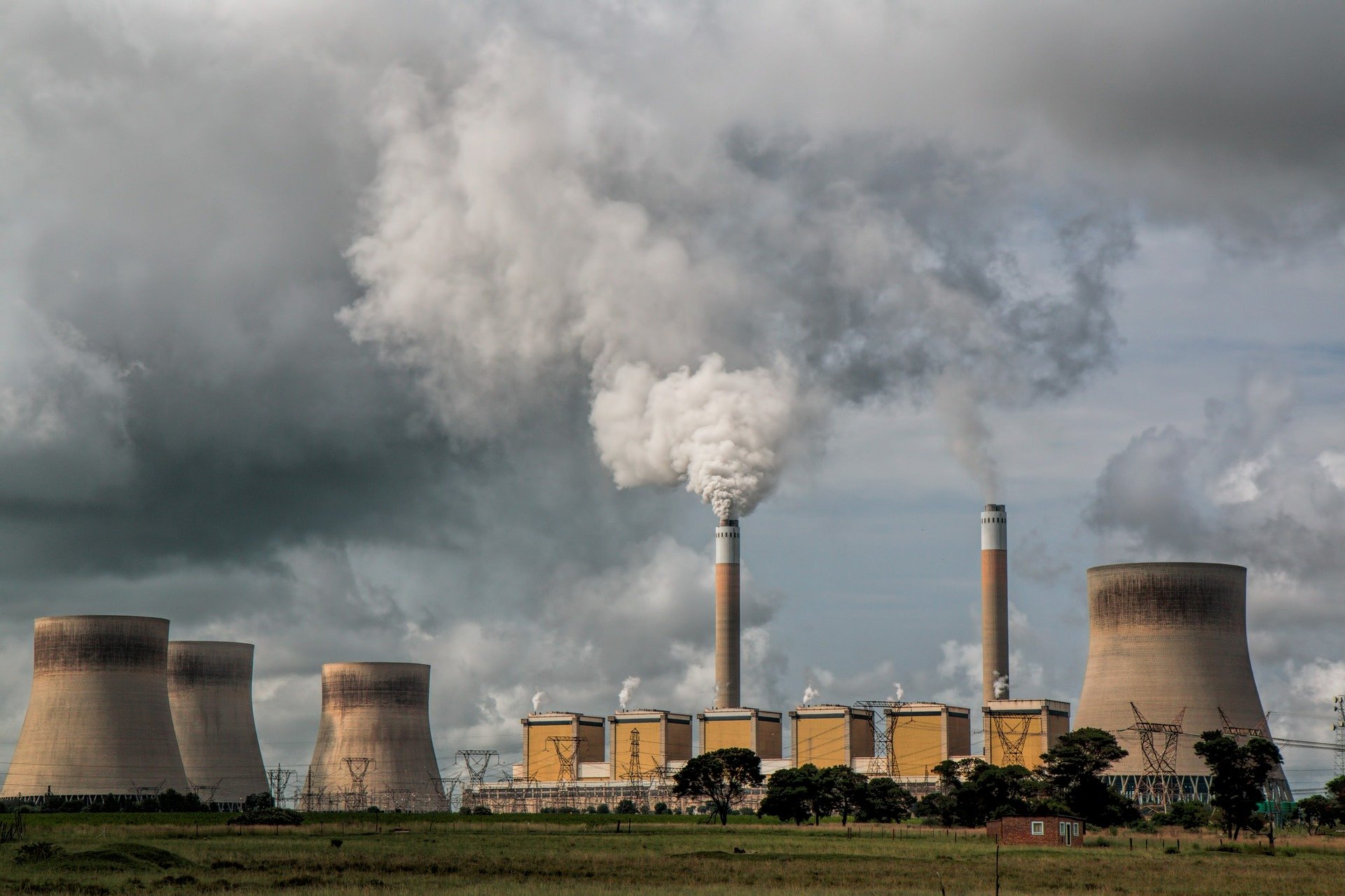
Autor: @madridbg, a través de Power Point 2010, utilizando imágenes de dominio público. akitada31
Greetings and welcome dear readers of the #hive platform and especially to all those users who make life in the @stemsocial community, this publication aims to address from the conceptual aspect the issue related to the production of hydrogen as a sustainable alternative to transform unsustainable energy consumption from the burning of hydrocarbons.
INTRODUCTION

Talking about the energy issue involves touching on the fundamentals associated with the indiscriminate use of non-renewable resources of our planet, especially hydrocarbons and their transformation into energy, which causes so much damage to the planet and its imbalances.
Imbalances that are associated with the loss of biodiversity, the appearance of the greenhouse effect, as well as the constant changes in the temperature of the planet. Problems that intensify over time and generate negative effects on society in general.
In this sense, we have seen the need to seek sustainable alternatives to mitigate the effects of the problems discussed above, so that research shows the use of hydrogen as an energy process in automobiles, as well as in power plants, a fact attributable to the low production of pollutants generated by the hydrogen element.
So throughout this writing, we will address the properties of hydrogen as a chemical element, as well as its implications as a substitute fuel for hydrocarbons.
HYDROGEN GENERALITIES

Hydrogen as an element is the simplest of the periodic table, it is formed by a single electron in its valence shell, which is balanced by a positive charge that we all know as a proton.
This element can be placed in group 1A of the periodic table, which is associated with the group of alkali metals that have the same electronic arrangement of hydrogen, however, we must highlight the similarity of this element with the group 7A or halogens, it only lacks one electron to match the nearest noble gas (Helium).

Fig. 2. Electronic charge distribution of hydrogen. Author: Benjah-bmm27
At the thermodynamic level we realize that the element has a high ionization energy, which is around 1312 KJ/mol, this property is attributable to the inability of the hydrogen atom to transfer its electron, on the contrary, it seeks to form compounds that allow electron sharing and thus to be able to weigh and distribute the charges, hence it is present in many organic compounds from alkanes, alkenes, alkynes, among others.
As we all know in our basic level scientific introduction obtained in our school education, the energy of any substance is found in the bonds and the breaking of these bonds allows to produce stored chemical energy, this property is the one that is taken into account at the time of energy production, whose effects we will study in the following sections.

Fig. 3. Explosion of the airship Hindenburg. Author: Gus Pasquerella
Another aspect that we must take into account of this multifaceted element, is its low reactivity at room temperature, products of the strong hydrogen-hydrogen bonds it forms, however when heated its reactivity increases considerably and becomes a powerful and dangerous flammable substance generating highly exothermic reactions in the presence of oxygen.
HYDROGEN AS A FUEL ADVANTAGES AND DISADVANTAGES

As mentioned in the previous section, the production of hydrogen under temperature and pressure conditions can generate exothermic reactions that can be used in any energy process. Hence its importance in the use as a fuel that emits zero emissions to our atmosphere, a fact attributable to the fact that during these processes water is obtained as a by-product of the reactions generated, so we can say that it is a clean process with no effects on the environment.
That is why at present, it has been seen as a great alternative in energy matters that allows to produce 242 KJ for each mole of hydrogen burned, values that exceed in relation 2 to 1 to gasoline, oil or natural gas and the best thing we do not affect the environment.
Based on the above, it is worth asking ourselves why not bet on the use of hydrogen from the beginning, and see it as an option after so many years affecting our planet?

Fig. 4. Traditional methods of obtaining energy are detrimental to the well-being of the planet. Author: Steve Buissinne
Undoubtedly it is an answer that is associated with economic terms, since its production is still very expensive, if compared to traditional fuels, a phenomenon attributable to the fact that the substances are not obtained as a natural source, to have access to this we must apply chemical process that allow us to obtain it and for this large amounts of money, time and energy must be invested, which would not be profitable for the current industry.
Hence, at present, advances in chemistry are aimed at generating a less costly method of obtaining it than the one known today, which is associated with the hydrolysis of water and the re-formation of hydrocarbons with water vapor.

Fig. 5. Hydrogen as fuels in space shuttles. Author: NASA-Imagery
Undoubtedly it is a breakthrough in energy that we could get to move towards new energy patterns associated with the use of hydrogen and currently there is evidence of its use as fuel, an example of this is represented by the space exploration developed by Saturn V, shuttle that was powered by burning hydrogen and although its use and storage in considered dangerous, there is evidence of the functionality of this.
FINAL CONSIDERATIONS

We are living in a period of transition and alarming demand in energy issues, hence, how essential it is to generate alternative and sustainable energy that can contribute significantly in reducing the environmental problems that afflict our planet. So it is timely and valuable from my perspective to publicize this information, where we must all do our bit for a society committed to our environment and our planet.
CONSULTED BIBLIOGRAPHIC REFERENCES

[1] Chang, R. (2010). Chemistry. Tenth edition. McGraw-hill Interamericana publishers. ISBN: 978-607-15-0307-7..
[2] Jil Hurtado. Hydrogen and energy. Article: Online Access
[3] Ralph, H. Petrucci, William S. Harwood, E. Geoffrey Herring. (2003). QUIMICA GENERAL. Octava edición. PEARSON EDUCACIÓN. S.A., Madrid.
[4] WADE,LEROY. (2011). . QUÍMICA ORGÁNICA. VOLUMEN 2. SÉPTIMA EDICIÓN. PEARSON EDUCACIÓN, MÉXICO, 2011 ISBN: 978-607-32.()793•5. ÁREA: CIENCIAS
OF INTEREST

For more information related to the areas of science, technology, engineering and mathematics, feel free to visit #stemsocial and #stem-espanol, communities that promote scientific advances in these areas.

Hi @madridbg you touch on a topic of planetary interest. For many years, Hydrogen has been in the limelight in terms of energy alternatives. Even though there are scientific evidence and developments that demonstrate the rightness towards obtaining energy, the generation of it still does not pass the financial test. Little by little, these barriers have been broken down. Thank you for bringing these readings that touch the planet.
If we can find a cheap and efficient way to produce hydrogen, it would be a huge discovery and relief for the planet as a whole. I hope that happens soon.
#posh twitter:
The rewards earned on this comment will go directly to the person sharing the post on Twitter as long as they are registered with @poshtoken. Sign up at https://hiveposh.com.
Congratulations @madridbg! You have completed the following achievement on the Hive blockchain and have been rewarded with new badge(s) :
Your next target is to reach 12000 upvotes.
You can view your badges on your board and compare yourself to others in the Ranking
If you no longer want to receive notifications, reply to this comment with the word
STOPCheck out the last post from @hivebuzz:
The beautiful thing about hydrogen fuel is that it is eco-friendly, water being the bye product. However, as @madridbg has rightly noted, the economic feasibility of process at present is still a great constraint